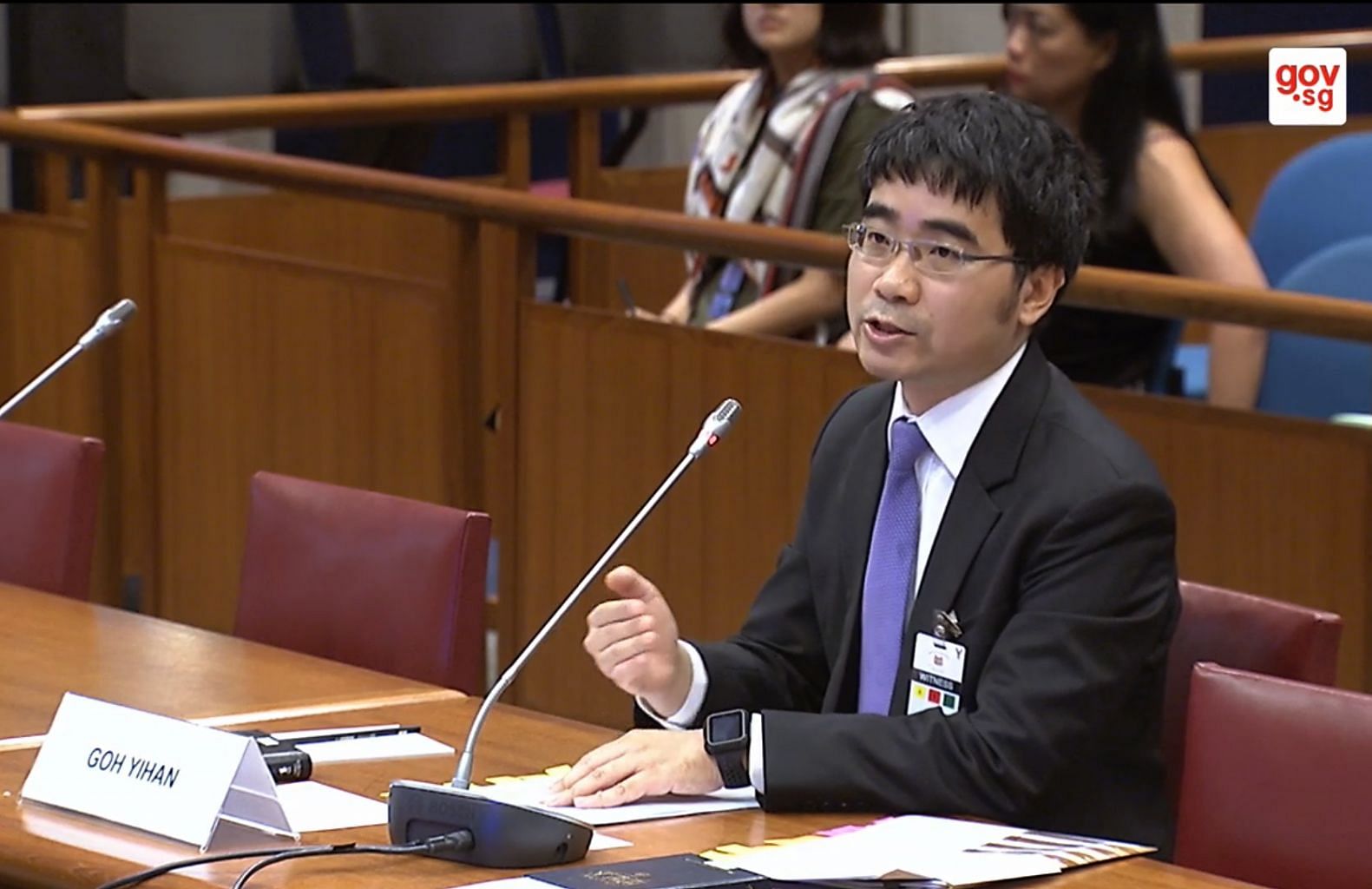Existing laws not sufficient to combat deliberate online falsehoods: SMU law dean
Sign up now: Get ST's newsletters delivered to your inbox

Singapore Management University law dean Goh Yihan concluded that existing laws such as the Sedition Act, Protection from Harassment Act and Telecommunications Act are currently limited in speed, scope and adaptability.
SCREENGRAB: USED WITH THE PERMISSION OF MCI
SINGAPORE - Existing laws cannot keep up with the scourge of deliberate online falsehoods, which can cross borders, spread rapidly and have serious, sometimes irreversible, consequences.
Singapore Management University law dean Goh Yihan, in looking at how existing laws such as the Sedition Act, Protection from Harassment Act and Telecommunications Act could apply to cases of online falsehoods, concluded that they are currently limited in speed, scope and adaptability.
"I've looked at the existing legislation and submitted they are not sufficient to deal with the problem," he said at the first public hearing on deliberate online falsehoods on Wednesday (March 14).
Dr Goh said any proposed legislation targeting such falsehoods would have to punish and deter perpetrators, prevent the spread of online falsehoods - by way of removal or restricting access - and provide remedy through clarification or apology.
Mr Edwin Tong, an MP for Marine Parade GRC, raised the point that while some laws deal with perpetrators who deliberately spread falsehoods, the falsehoods themselves are not covered, leaving them free to circulate online.
Dr Goh agreed, saying that existing legislation cannot keep up with the rapid spread of online falsehoods.
"I submit that the judicial process, while important and needs to be thorough, may not be sufficiently fast to deal with the rapid spread of online falsehoods," he said.
An appropriate approach, he said, would be legislation which deals with online falsehoods by quickly taking down the falsehood and balancing that with independent judicial oversight where the statement-maker can apply to court to show why it should be reinstated.
In his written submission, Dr Goh laid out three examples of deliberate online falsehoods in other countries and territories such as Saint-Martin, France and Japan, and how Singapore's laws would apply to them.
One of them revolved around how a woman named "Rebecca Riviera" claimed to be a resident of Saint-Martin - a French territory affected by Hurricane Irma in 2017 - and claimed on Facebook that Air France increased its airplane ticket prices before the incident, that the hurricane had left thousands dead, with bodies in the water, and that the authorities were hiding the truth.
These claims later turned out to be false.
Dr Goh said that while criminal laws might apply, as such claims could cause public alarm, it would take time for investigations to find who "Rebecca Riveria" really was. Furthermore, he added, even if she was arrested, her falsehoods would remain online, with no means of ensuring readers are presented the true facts.
While the examples highlighted how existing laws cannot adequately address fake news, Dr Goh said legislation cannot be the only solution. "We must balance legislation with education as well as reaching out to different communities," he said.
Public hearings to fight online falsehoods: Read the submissions here.


